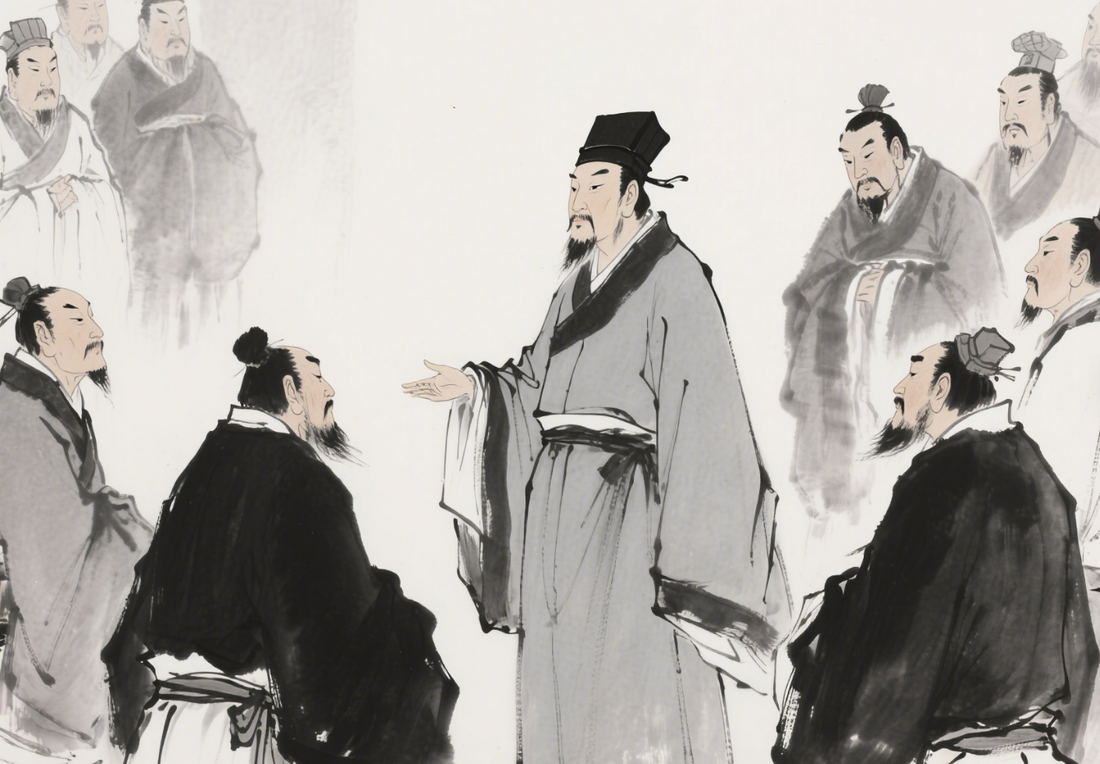Yan Chu (颜斶), a native of the State of Qi during the Warring States Period, lived around 320–301 BCE, contemporary with King Xuan of Qi. Summoned by King Xuan, he represented the interests of scholars ("shi 士") and put forward the slogan, "Scholars are noble; rulers are not" (Strategies of the Warring States: Qi 策四).
He argued that a monarch’s virtue depended on whether they respected scholars or belittled their subjects, stating, "The path to profound virtue lies in the power of honoring scholars" (ibid.). He regarded the tradition of honoring scholars as a legacy of ancient wise rulers, tracing it back to Yao and claiming it had been passed down continuously. He said, "Yao passed the throne to Shun, Shun to Yu, and King Cheng of Zhou entrusted the Duke of Zhou—all are called wise rulers through the ages, demonstrating the nobility of scholars" (ibid.).
✨ Recommended Taoist Talismans
Discover powerful talismans for your spiritual journey
Philosophically inclined toward Daoism, he upheld its core tenet of "non-being as the foundation." He stated, "The formless is the ruler of forms; the boundless is the root of affairs. When the superior perceives the origin and the inferior understands the flow, even the most sage-like learning will bring nothing but good fortune" (ibid.)
He advocated Daoism’s idea of returning to simplicity and truth, arguing that although jade becomes more precious after carving, it is fragmented compared to its natural state in the mountains; similarly, scholars who accept official positions and salaries, though honored, lose their "integrity of body and spirit" compared to reclusive scholars. He advocated for avoiding fame, seeking tranquility, and simplicity, stating, "Eating late is akin to enjoying meat; walking slowly is akin to riding a carriage; being free from guilt is akin to nobility; tranquility and purity bring self-contentment" (ibid.). He emphasized matching names with reality, opposing flashiness without substance and valuing 虚名 (empty reputation) over real merit.
He warned, "Those in high positions who lack real achievement yet delight in fame will act arrogantly and extravagantly. Arrogance and extravagance invite disaster. Thus, those without real merit but fond of fame will be weakened; those without virtue but seeking fortune will be constrained; those without merit but accepting salaries will be disgraced—calamity is sure to follow. Therefore, it is said: Boasting of merit achieves nothing, and empty wishes never come true. These are all those who take pleasure in empty reputations and flamboyance without real virtue." (ibid.) He believed that flashiness without substance, seeking fortune without virtue, and accepting rewards without merit would inevitably lead to misfortune. His deeds and teachings are recorded in Strategies of the Warring States: Qi 策四.



















